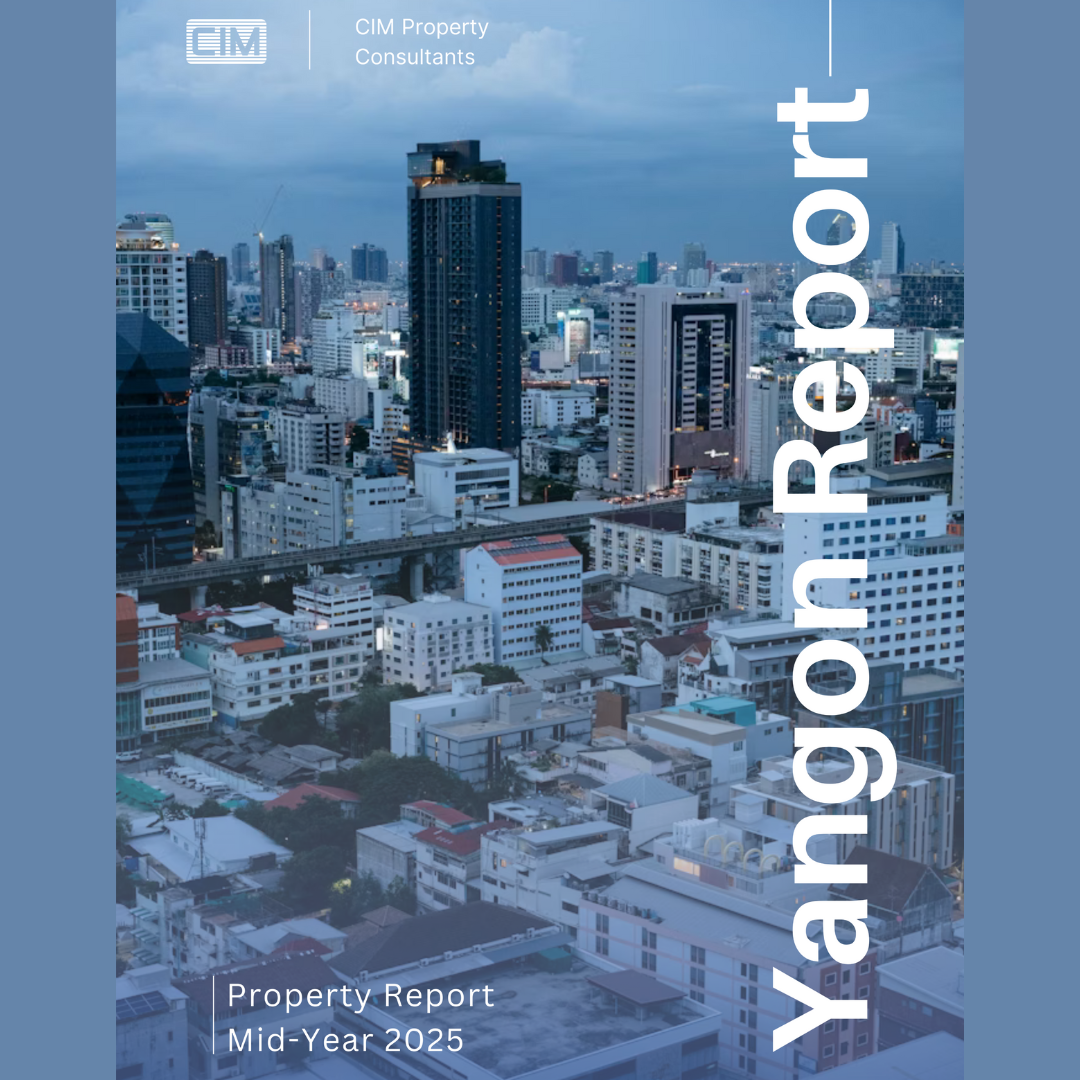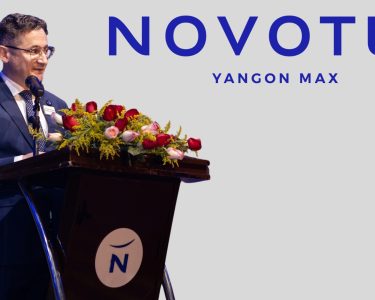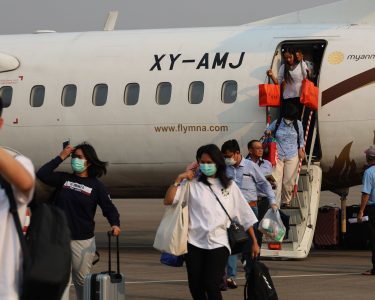Myanmar Investment Review
CIM Property Consultants’ Mid-Year 2025 Yangon Property Report outlines a property market adapting to shifting demand patterns and rising competition, with operators across sectors increasingly leaning on domestic-focused strategies to unlock value. The report highlights that while international arrivals and foreign investor activity remain subdued, local tenants, businesses, and residents are playing a critical role in sustaining market momentum.
Office: Shift Toward Domestic Pricing and SMEs
Yangon’s office occupancy rate rose to 68% in the first half of 2025, up 2% from the previous period. The improvement reflects continued demand for affordable Grade B and C office towers, which dominate leasing activity due to their practicality and lower rental rates. These spaces remain attractive to domestic firms and small and medium-sized enterprises (SMEs), which continue to expand cautiously.
Read More: DFDL Myanmar Tax Guide 2025 Highlights Key Changes and Opportunities for Businesses
A notable trend flagged in the report is the growing practice of quoting office rents in Myanmar Kyat rather than the traditionally used U.S. dollar. Analysts suggest this change could reduce currency risks for domestic tenants, further strengthening local market participation.
Retail: Education Sector Fuels Recovery
Yangon’s city-wide headline retail rent rose to $20 per square meter per month, reflecting 3% half-on-half growth. While retail has been challenged by changing consumption patterns and subdued international spending, older malls are benefiting from renewed activity.
The report points to a rise in leasing demand from private education institutions and training centers, which are increasingly occupying centrally located and transit-accessible retail properties. This trend underscores how retail spaces are diversifying beyond traditional shopping, with education emerging as a stable tenant category.
Serviced Apartments: Earthquake Relocations Boost Occupancy
Serviced apartments saw their occupancy rate climb to 61%, an 11% increase compared with the previous period. CIM attributes the rise largely to relocations triggered by the March earthquake, which prompted individuals and families from Mandalay to temporarily move to Yangon.
While this surge has increased short-term demand for flexible serviced accommodation, the report cautions that it is uncertain whether occupancy levels can be sustained once relocation-driven demand subsides. Operators are advised to focus on adaptable leasing arrangements and tenant retention strategies.
Hotels: Domestic Guests Dominate Demand
The hotel sector continues to face headwinds from weak international tourism, particularly in the wake of regional instability and subdued global travel sentiment. Domestic travelers — including staycationers, daycation guests, and short-term business visitors — remain the primary source of demand.
The Ministry of Hotels and Tourism reported that international arrivals fell 17% in the first half of 2025 compared to the same period last year. Average daily rates (ADR) for Yangon’s upper-scale hotels stood at around $59 per night, showing resilience despite the weaker inbound market.
Condominiums: Structural Integrity and Steady Demand
CIM notes that the March earthquake has shifted developer priorities, with greater emphasis now placed on structural resilience and adherence to construction standards. Despite the challenges, condominium demand has remained steady, with an overall take-up rate of 78% city-wide and a year-on-year increase of 1%.
Looking ahead, analysts see long-term growth potential supported by steady new project launches, rising urbanization, and growing demand for secure housing options among both domestic and regional buyers.
Industrial & Land Market: Heightened Competition in Key Zones
Yangon’s industrial property market showed strong activity in the first half of the year, with demand concentrated in strategic areas such as Dagon Seikkan and Shwe Pyi Thar. These zones are favored for their connectivity, established infrastructure, and proximity to logistics networks.
As more corporate occupiers and developers compete for limited plots, land values are rising, reflecting both confidence in Myanmar’s industrial base and the scarcity of prime industrial land. Analysts expect competition in these areas to intensify further, pushing upward pressure on valuations.
Outlook: Domestic Tenants and Resilience to Lead Market Strategy
The CIM Mid-Year 2025 report underscores that operators must adopt a more domestic-oriented approach to maintain competitiveness. For offices and serviced apartments, tailoring marketing to local SMEs, professionals, and temporary workers is key. In hotels, highlighting value for money to domestic travelers remains crucial, while condominium developers are advised to showcase lifestyle amenities and structural reliability.
Overall, the report concludes that Myanmar’s property market resilience hinges on its ability to meet the needs of domestic occupiers while balancing affordability, flexibility, and long-term income potential in a period of global economic uncertainty.
—
“CIM Property Consultants offer a subscription-based market report. With over 10+ years of experience in the market, the report serves as a valuable resource, offering in-depth analysis and up-to-date information to guide subscribers in the opaque market.
The Yangon Property Market subscription-based report aims to provide:
1. An overview of the current state and trends in the Yangon Property Market.
2. Insights into the latest economic developments impacting the market.
3. Valuable analysis of the business landscape and market dynamics in Yangon across sectors such as banking, energy, financing, real estate, forex, infrastructure, and trading.
4. Updates on upcoming infrastructure projects shaping the property market.
5. Timely and informative property news analysis to empower informed decision-making.
6. Market analysis of Commercial Office, Retail, Serviced Apartment, Hotel, and Condominium sectors,
including future supply, demand, rental rates, and sale prices, highlighting trends, challenges, and investment
opportunities.
7. Analysis of the Yangon Industrial Market.
8. Access to information on indicative land values in Yangon.
9. Exclusive property listings for potential investment ventures.
10. Overall investment interests, practices, and trends.
The subscription also comes with a complimentary 1-hour consultation per quarter. Get in touch for more details and trial version:
𝐊𝐚𝐫𝐥𝐨 𝐏𝐨𝐛𝐫𝐞
Managing Director | Myanmar
+95 (0) 979 573 3378
karlo.pobre@cim-pc.com
𝐆𝐚𝐫𝐲 𝐀𝐮𝐧𝐠
Manager | Myanmar
MD Office
+95 (0) 997 902 1685
gary@cim-pc.com
𝐌𝐚𝐭𝐭𝐡𝐞𝐰 𝐓𝐮𝐧
Associate | Myanmar
MD Office
+95 (0) 979 053 6710
matthew@cim-pc.com





